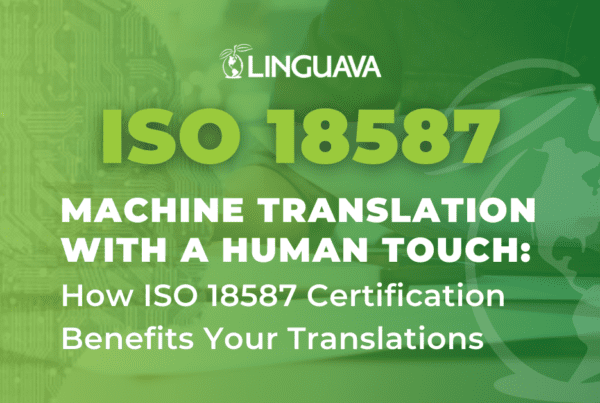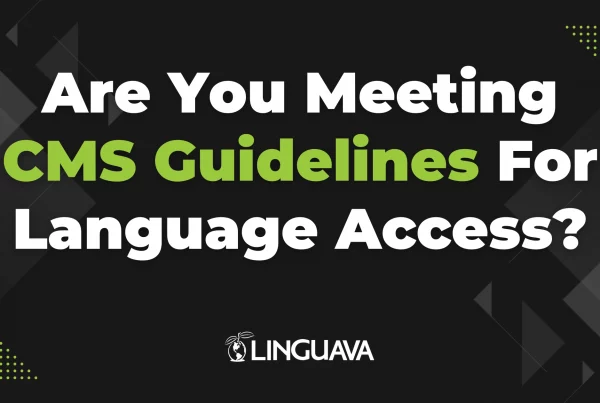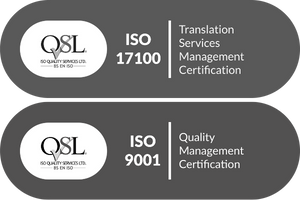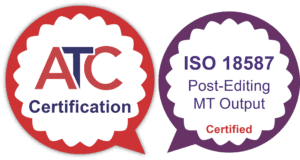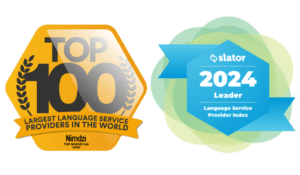Did you know that 1 out of 5 families in the United States is considered to have limited English proficiency? This means that they may not fully understand their medication instructions and the treatment plan their healthcare provider has prescribed. This is a serious issue that can lead to poor health outcomes and increased costs for both patients and providers. What is the correct solution?
The answer is simple: translating prescriptions. Here we will explore the importance of translating prescriptions and how it can break down barriers and improve access to care for individuals of limited English proficiency. So, are you ready to learn more about how translation can improve healthcare for all?
Translating Prescriptions Ensures Understanding
One of the most important reasons for translating prescriptions is to ensure that individuals of limited English proficiency fully understand their medication instructions. Without the ability to understand their prescriptions, they may not take their medication correctly, which can lead to poor health outcomes.

Improving Health Outcomes
By providing translated prescriptions, individuals of limited English proficiency are better able to follow their treatment plans and manage their conditions. This can lead to improved health outcomes, such as lower rates of hospitalization and readmission, ultimately resulting in a better quality of life for these individuals.
In addition to improving access to care and reducing costs, translating prescriptions is also required by law. Title VI of the Civil Rights Act of 1964 prohibits discrimination based on race, color, or national origin in programs and activities that receive federal financial assistance. Section 1557 of the Affordable Care Act (ACA) extends these protections to include discrimination based on sex, age, and disability. This means that healthcare providers receiving federal funds must ensure that their services are accessible to individuals with limited English proficiency, including providing translated prescriptions and other materials. By translating prescriptions, healthcare providers can ensure that they are in compliance with Title VI and Section 1557 of the ACA and providing the best possible care to all patients.
Lowering Additional Medical Care
When patients are not taking their medication correctly, they are more likely to require additional medical care, such as hospitalization or readmission. This can be costly for both the individual and the healthcare system as a whole. By providing clear, easy-to-understand instructions for medication, providers can help to reduce the need for additional medical care and lower costs.

Improving Communication
Translating prescriptions also improves communication between healthcare providers and their patients of limited English proficiency. When patients are able to understand their medication instructions, they are more likely to ask questions and provide important information to their healthcare providers. This can lead to more effective communication and ultimately better care for the patient.
In conclusion, translating prescriptions is an important aspect of healthcare for individuals of limited English proficiency. By ensuring that they fully understand their medication instructions, we can improve their health outcomes and reduce costs for providers. It’s important for healthcare providers to recognize the importance of language accessibility and work with translators to ensure that all individuals have access to the care they need.
At Linguava, we understand the importance of accurate and clear translations for medical documents, including prescriptions. Our team is experienced in translating prescriptions and other medical documents to ensure clear communication for limited English proficiency patients. Improve access to care and reduce costs by contacting us for a quote today.
If you are in need of professional translation & localization services, Linguava can help. Our ISO certified team of experienced and certified translators can provide accurate and reliable translations for all types of documents, including medical, legal, and technical documents.
At Linguava, we are here to support you as your partner in language access. If you are looking for high quality Translation and Localization , Scheduled Video Interpretation, Video Remote Interpretation, Over the Phone Interpretation, or American Sign Language, please connect with our team of experts below to learn more.

If you have a file ready to translate, get your file analysis and free quote here.
Do you want to know more about ISO?
Meet our Quality Assurance & Production Manager & ISO Expert!
Patricia Muñoz Andrés
Email: patricia@linguava.com
Connect on LinkedIn

Video Transcript:
What is the importance of translating prescriptions?
If you think about every single part of a patient journey, they must have the same opportunity as everyone else to have meaningful language access and proper understanding. If you think about the prescriptions that you might be getting at the pharmacy or at your doctor’s office, every single word and number on there is vitally important to their health and making sure that they can follow the proper directions.
A common story that many of us have heard about is when a patient took a prescription in English and it said, take the pill once per day, and they read that in Spanish once, if you read it, it says “once” which would be 11, not one. Very different and created a detrimental situation for that individual who misread the English only medication.
So it’s important that we provide every single word for all of our patients in their target language to ensure that they have proper understanding and the best health outcomes.


